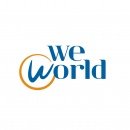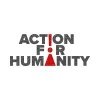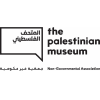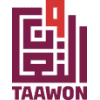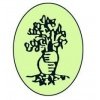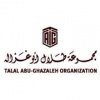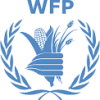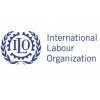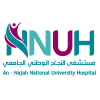Project Management Training Workshop
Project Management training workshop targeting the beneficiaries of SIDA project
Background
This activity will be realized within the framework of the project “SIDA” targeting five communities (Khirbet Fakeit, Khirbet Al Deir, Wadi Fukin, Wadi Rahhal and Ein Shibli) from Hebron, Bethlehem and Nablus Governorates. Amongst other activities, WW-GVC will support about 80 individuals suffering from marginalization mainly caused by long term unemployment to set up Income Generating Activities (IGAs). These beneficiaries will be selected between the most successful participants in the micro-enterprise trainings, organized by WW-GVC with the main purpose of creating the bases enabling them to start their own businesses or expanding them in case they exist.
Scope of the activity
The activity will consist of two main phases:
- A Training on income generating activities;
- The follow up/ Monitoring of 16 Income Generating Activities.
The trainings will be conducted one in Hebron and one in Nablus. It will target around 30 beneficiaries from targeting five communities (Khirbet Fakeit, Khirbet Al Deir, Wadi Fukin, Wadi Rahhal and Ein Shibli) from Hebron, Bethlehem and Nablus Governorates.
The main objectives of the activity are:
The training to include at least ten (10) training sessions of 5 hours each, for a total of 50 hours. The objective of the training sessions will be to provide the trainees with the knowledge and skills necessary to start/ initiate and maintain their own small income generating activity.
The training course will include sessions in Business Management and Marketing Enhancement including but not limited to; small business planning, financing, marketing, packaging and bookkeeping. As part of the practical training, beneficiaries will be supported in drafting a proposal/concept note for the IGA they would like to set up and receive the necessary business management skills in order to complete the business plan.
A committee composed by WW-GVC and (Village Council and /or the community committee) representatives and the consultant will select the best 50 proposals/concept notes and WW-GVC will then support the creation of 16 IGAs through the distribution of (up to) 7,500 Euro grant per each candidate.
The service provider will also be responsible to nominate a consultant for the follow up of these IGAs. She/he will be responsible to conduct at least two monthly field visits for each of the selected IGAs beneficiaries in their locations over a period of six months total of 96 hours (the coaching visit will last 2 hours per each beneficiary). The main objective will be to monitor the economic activity (expenses and profits to date, stocks, proper use of the monitoring tools defined during the trainings, etc.). As well as provide the needed recommendations and instructions according to each beneficiary’s challenges that appeared after launching the projects and the implementation; in order to ensure sustainable improvements for these projects.
The objective of the coaching field visits is to provide the beneficiaries according to each IGA field with the needed support on how to manage their project financially in terms how to do the calculation of the project income and outcome and the project’s running cost on monthly basis. In addition to provide the beneficiaries with alternatives and/or suggestions for the problems and challenges might be faced by the beneficiaries in terms of marketing and financial management of the project and improving access to market-driven technical skills building for around 30 beneficiaries. The follow up visits to the 16 funded IGAs will be conducted in coordination with WW-GVC team.
Methodology
The methodology that will be used within these trainings will be based on a participatory approach. Trainees shall have the opportunities to learn, practice new techniques and implement them within their own environment. Theoretical information will be disseminated to participants through lectures and group discussions will provide the chance for better understanding to issues raised during lectures.
Other training techniques like coaching, mentoring, case studies and role playing could be used as for better understating, analysis, and developing skills.
The follow up visits to the 16 funded IGAs will be conducted in coordination with WW-GVC team to ensure an appropriate use of the theoretical information gained during the training.
The training (50 hours) to be consisted from two phases:
The first phase addresses social skills such as self-development and communication skills, while the second phase is about project management and marketing skills.
In the first phase the trainer has to consider to raise the awareness of the beneficiaries on Gender topics/issues; mainly the women’s financial right (i.e., their right to work) and the impact of the financial independence. While, in the second phase the trainer has to focus on the project management and skills, financial planning, marketing …etc.
The specific objectives of the coaching
- To enable each beneficiary to identify their customer, products, and competitive advantage.
- To learn some important skills needed to manage their businesses in marketing, accounting, management, and communications and to Learn a new tools and technique to improve their daily work.
- To Provide the beneficiaries with the needed support on how to manage their project financially.
- To provide the beneficiaries with alternatives and/ or suggestions for the problems and challenges they faced through their running their projects.
Tasks to be carried out to reach the goal:
- Field visits – twice per month for each beneficiary
- Communicate with the beneficiaries between each visit through what’s app
- Exercises and tasks will be given to each beneficiary
- Network the beneficiaries with professionals on their sectors
The methodology that might be used:
- Individual sessions through face to face and online.
- Group sessions.
- Meeting with professionals.
- Beside the following tools: questions, exercises, material to read, videos, forms to use at the business, observation, analysing their situations through their sales and purchases numbers.
Before each field visit or online session, the trainer has to prepare informed agenda for the session and plan for several questions to be asked at the session, and at the session the trainer has to take notes to fill field visit report which has to be shared with WW-GVC after the field visits and filling the field visit tracker.
Suggestion of Topics to be covered during the training:
- Life skills: There should be a focus to develop participants’ skills in dealing with the challenges women face in their communities, particularly the social norms and traditions that restrict women’s social and economic participation, self-development and independence.
- Challenges faced by women in running or managing their projects/businesses (Project-related and gender-based challenges) as well as potential solutions.
- The significance of self-development skills, training in managing projects/businesses in addition to the importance of peer-to-peer exchange of experience and knowledge.
- Communication skills.
Entrepreneurship
- Create your project’s idea.
- Entrepreneurship.
- Characteristics of entrepreneurs.
- Traits and skills to be a successful entrepreneur.
- Fundamental elements for a project’s idea.
- Description of a project’s idea.
- Discussion on how to select the project’s idea.
Marketing
- Marketing skills.
- Market study (Worksheet).
- Buying and selling processes.
- Marketing and negotiation skills.
Financial Management
- Introduction in financial management of the project.
- The importance of financial planning of any project success.
- Preview on the financial challenges that women face in implementing the project.
- Introduction to budgeting.
- Introduction to surplus/deficit.
- Household budgeting.
- Personal budgeting.
Financial Study
- Empowering participants in the topic of financial study.
- Liquidity and its effect on the project.
- Cash flow and calculations of profit and loss.
- Cost calculation.
- Debt Management.
- Saving and its importance in facing financial problems and challenges.
- Setting financial goals.
- Identifying problems and solutions for small enterprises.
- Bookkeeping and the importance of keeping records
- Management and setting goals.
- Time management and its significance to the project success without affecting their personal lives.
Feasibility Study
- Feasibility study of a project.
- Review all the concepts covered in the training and how to transfer these concepts into figures to ensure the project’s feasibility (profits, costs, sales, competitors, and expenses).
- Preparing feasibility studies for all participants.
Potential challenges:
The trainer might need to change the training plan, more than once, in order to align the various educational level of the participants with the training areas and simplify the training concepts for more efficient understanding.
Selection criteria:
Criteria for selecting candidates
- Attendance and commitment to the training.
- Existing project idea that can be studied and implemented on the ground and should be matching with the participant’s skills and social setting
- Active participation in the training sessions.
- Possessing the necessary skills to run the project.
- Understanding the market needs to ensure that the project’s idea is in line with the market demands.
- Ability of collecting the needed data and information on the project.
- Availability of fundamental elements to establish a project (i.e., land or store/in kind contribution).
- Cost efficiency
- Innovative ideas related to environment protection are preferred
Exclusion Criteria
- Lack of a project idea or having too many ideas.
- The project’s idea is not applicable to the market needs of the surrounding area.
- Lack of project-management skills.
- Restrictive social or traditional norms that would prevent the woman from working outside of her house.
The selected beneficiaries/ trainees of the “Project Management – Microbusiness training” will be involved in other SIDA project’s trainings, for examples but not limited to:
- Training of women and youth on civic engagement, advocacy and inclusive communities.
- Awareness-raising-protection of the environment to support sustainable development.
- Territorial planning workshops between clustered communities to invest in social cohesion.

Interested candidates should apply to: [email protected]
The deadline for receiving offers is 10.7.2021 at 12:00 PM




